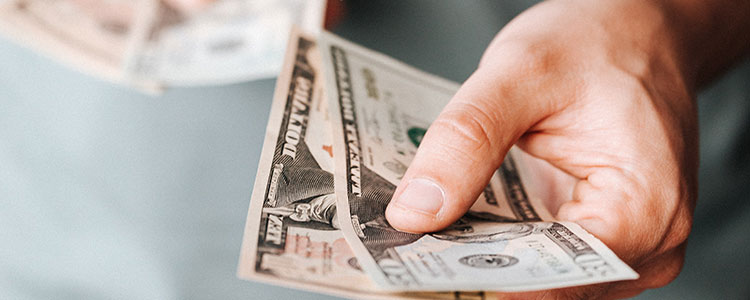-
What you will learn in this post:
- Key Takeaways About California Weed Laws
- Is Medical Cannabis Legal in California?
- Is Recreational Cannabis Legal in California?
- How Did Cannabis Become Legalized in California?
- What is Required to Get a Medical Marijuana Evaluation in California?
- What Legal Protections Does a Medical Card Offer in California?
- Do Medical Cannabis Patients Pay Lower Taxes in California?
- Is Cannabis Delivery Available in California?
- Where Can I Legally Consume Cannabis in California?
- How Much Cannabis Can I Possess in California?
- Can I Grow Cannabis at Home in California?
- Is Cannabis Gifting Allowed in California?
- Can I Transport Cannabis in My Car?
- What Types of Cannabis Products Are Available in California?
- Where Can I Purchase Cannabis in California?
Key Takeaways About California Weed Laws
- Medical cannabis has been legal in California since 1996 under Proposition 215. Patients with valid medical cards can possess more, pay lower taxes, and access stronger products through licensed dispensaries.
- Recreational cannabis was legalized for adults 21+ in 2016 under Proposition 64. Consumers can buy, possess, and grow limited amounts for personal use.
- Hemp and hemp-derived THC are still legal under state and federal law, though products must meet testing and labeling requirements. Delta-8 and other hemp-derived cannabinoids are regulated but remain available in most parts of the state.
Cannabis has been legal in California for years, but the rules continue to evolve. From possession limits and home growing to new café-style lounges and updated state taxes, there’s a lot to keep up with.
Whether you’re a medical patient or an adult-use consumer, understanding California’s current cannabis laws helps you stay compliant and make the most of your rights. Here’s what to know about cannabis legality, use, and regulations across the Golden State.
Is Medical Cannabis Legal in California?
Yes. California legalized medical cannabis in 1996 through the Compassionate Use Act, also known as Proposition 215. The law made California the first state to protect qualified patients and caregivers who use or grow cannabis for medical reasons.
Today, the state’s medical program operates under MAUCRSA, or the Medicinal and Adult-Use Cannabis Regulation and Safety Act. This sets the rules for licensing, possession, and patient access statewide.
Is Recreational Cannabis Legal in California?
Yes. Adult-use cannabis became legal in California in 2016 with the passage of Proposition 64, also known as the Adult Use of Marijuana Act. The law allows adults 21 and older to buy, possess, and consume cannabis within set limits. It also created the framework for licensing dispensaries and regulating cultivation, manufacturing, and sales through the MAUCRSA.
How Did Cannabis Become Legalized in California?
Medical cannabis became legal in California in 1996 with Proposition 215. Adult-use followed twenty years later with Proposition 64 in 2016.
The Compassionate Use Act established the nation’s first-ever medical marijuana program. It allowed patients and caregivers to possess and grow cannabis for medical use. Proposition 64 expanded those rights to adults 21 and over, creating a regulated market for recreational sales. Both programs now operate under a unified framework (known as the MAUCRSA).
What is Required to Get a Medical Marijuana Evaluation in California?

With NuggMD, you only need a California state ID, driver’s license, or a U.S. passport to get your medical marijuana evaluation. If you've got medical records that can help your doctor better evaluate your condition, you should also upload these during the signup process.
If you're planning on applying for an optional state MMIC after your NuggMD evaluation, you’ll need:
- A doctor’s recommendation.
- Valid government-issued ID.
- Your photo, taken at the county’s medical marijuana program office.
- Proof that you live in the county.
What Legal Protections Does a Medical Card Offer in California?
A California med card offers added legal protections that go beyond adult-use access. Patients are recognized under state law and enjoy several important rights.
- Criminal Protections. Cardholders are protected from criminal penalties for possessing or using cannabis within medical limits.
- Medical Protections. Patients cannot be denied an organ transplant solely on their use of medical cannabis.
- Employment Protections. New laws now prevent most employers from discriminating against workers for off-duty cannabis use or for testing positive for non-psychoactive cannabis metabolites.
- Renter Protections. Landlords may still restrict smoking on their property. However, patients generally can’t be evicted solely for being registered medical cannabis users.
- Parental Rights. Parents with valid medical cards can’t lose custody or visitation solely for lawful medical cannabis use, unless it endangers the child.
Can I still get fired for using cannabis in California?
As of 2024, employers are not permitted to deny employment due to a positive drug test for cannabis unless under specific conditions, such as a safety-sensitive position, a federal job, or any job that takes a certain amount of federal funding.
Do Medical Cannabis Patients Pay Lower Taxes in California?

Yes, medical cannabis patients with an MMIC ID card generally pay lower taxes than adult-use consumers in Cali.
Medical purchases with an MMIC are exempt from state sales tax, while adult-use sales are not. Recreational cannabis is subject to both the standard sales tax and a 15% state excise tax. Cities and counties may also add local business or cultivation taxes that increase costs for consumers without an MMIC.
How does California use its cannabis tax revenue?
- Public health and education programs.
- Community reinvestment grants.
- Environmental restoration.
- Substance-use prevention and treatment initiatives.
Is Cannabis Delivery Available in California?
Yes. Cannabis delivery is legal statewide for both medical and adult-use consumers. Medical patients can order directly from licensed dispensaries and may access a wider range of products or higher purchase limits. Local jurisdictions can’t ban licensed deliveries. Patients and adult-use consumers alike can legally receive cannabis at their homes anywhere in California.
Where Can I Legally Consume Cannabis in California?
Cannabis use is legal in private settings, but California has strict limits on where it can be consumed. Public use, driving under the influence, and smoking in non-designated spaces remain prohibited.
Cannabis can be legally used in the following areas in California:
🗹 Private properties such as residences.
🗹 Licensed cannabis lounges or businesses with a commercial consumption license.
🗹 Designated events or social-use spaces approved by local authorities.
Cannabis cannot be consumed in:
X Public spaces.
X Businesses without a consumption license.
X Moving vehicles, for both drivers and passengers.
X Areas where tobacco use is banned, such as restaurants and most workplaces.
Landlords can prohibit smoking or vaping cannabis on their property, even for medical patients. However, registered patients may still have some protections for non-smoked forms of cannabis use within their residence.
How Much Cannabis Can I Possess in California?

Possession limits depend on whether you’re a medical patient or an adult-use consumer. Medical patients can hold significantly more cannabis than rec users.
Medical patients in CA may possess:
- Dried cannabis: Up to 8 ounces (or more if recommended by their physician).
- Cannabis concentrates: Varies by product type and patient need.
- Cannabis plants: As recommended by their doctor or primary caregiver.
Adult-use consumers (21+) in CA may possess:
- Dried cannabis: Up to 28.5 grams (about 1 ounce).
- Cannabis concentrates: Up to 8 grams.
- Cannabis plants: Up to 6 plants per household for personal use.
Patients and caregivers may exceed recreational limits when necessary for medical use, but all cannabis must be stored securely and out of public view.
Can I Grow Cannabis at Home in California?
Yes. Home cultivation is legal for both medical and adult-use consumers in California, though the limits differ.
Adults 21 and older can grow up to 6 cannabis plants per household for personal use. They must be kept in a private, enclosed space away from public view. Medical patients and their caregivers may grow more if a physician recommends it for the patient’s health needs.
Some cities and counties have additional restrictions, such as banning outdoor grows or requiring local permits. Always check local regulations before planting.
Is Cannabis Gifting Allowed in California?
Adults 21 and older can gift cannabis to one another as long as no money, goods, or services are exchanged. Gifts must stay within legal possession limits and be given directly, not through delivery or advertising.
Adult-use consumers can gift up to 28.5 grams of flower or 8 grams of concentrate to another adult. Medical patients may share or transfer cannabis within their allowable medical limits, but the exchange must remain strictly non-commercial. Selling cannabis without a license is still a crime under state law.
Can I Transport Cannabis in My Car?
Yes, adults can transport cannabis in California as long as it stays within legal limits and remains sealed and out of reach while driving.
Cannabis should be kept in a closed container, ideally in the trunk, and never opened or consumed in the vehicle. Open packages or active use while driving can lead to fines or DUI charges. Passengers are also prohibited from consuming cannabis in a moving vehicle, even if they aren’t the driver.
Because cannabis remains federally illegal, it is against the law to transport cannabis across state lines, even if cannabis is legal in both states.
What Types of Cannabis Products Are Available in California?
California’s cannabis market offers one of the widest product selections in the country. Both medical and adult-use consumers can find products to fit nearly every preference and need.
Common cannabis products available include:
- Dried flower and pre-rolls.
- Vape cartridges and concentrates.
- Edibles and beverages.
- Tinctures and sublingual drops.
- Topicals and transdermal patches.
- Capsules and tablets.
- CBD and THC-balanced products.
All products must be lab-tested, accurately labeled, and sold through licensed dispensaries or delivery services.
Where Can I Purchase Cannabis in California?
Cannabis can be purchased from state-licensed dispensaries. Dispensaries serve either medical patients, adult-use consumers, or both.
Medical dispensaries may offer stronger products, higher purchase limits, and tax exemptions for patients with valid medical cards. Recreational dispensaries serve adults 21 and older and tend to be more widely available.
Some local areas restrict cannabis businesses entirely. Availability can vary by city or county.
The information in this article and any included images or charts are for educational purposes only. This information is neither a substitute for, nor does it replace, professional legal advice or medical advice, diagnosis, or treatment. If you have any concerns or questions about laws, regulations, or your health, you should always consult with an attorney, physician or other licensed professional.


